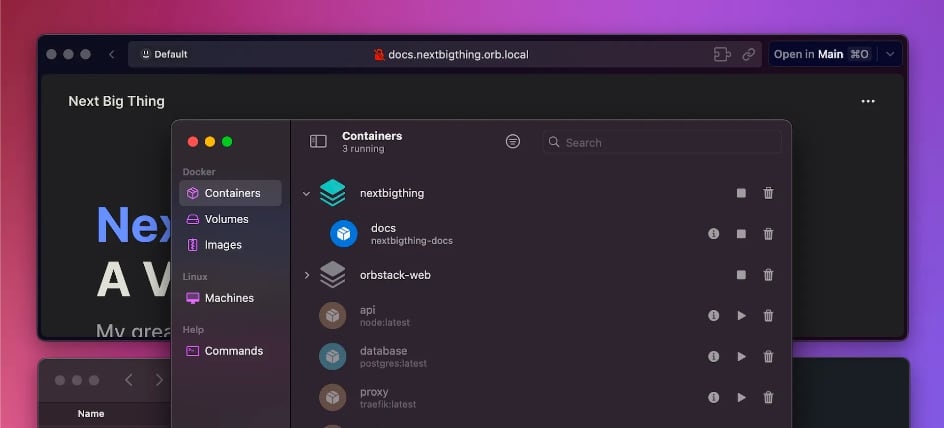Compatibility Issues Between Swoole and mDNS

Introduction⌗
Ever since I started using OrbStack, there’s no going back. OrbStack automatically registers container domain names into the host’s mDNS, solving a few tricky issues for beginners:
- Different
HOSTvalues when accessing the same database container from the host machine and from inside another container - The need to map the database container’s ports to the host machine
For example, in my local development environment, I run MySQL and Redis containers and assign them the following domain names:
- mysql.database.local
- redis.database.local
Once the corresponding containers start in OrbStack, it automatically registers them with macOS’s mDNS, allowing access to containers via these domain names.
OrbStack Network Architecture⌗
OrbStack uses a custom networking stack to manage communication between containers and the host. By default:
Internal container IP (e.g.,
10.0.8.33): This is the private IP assigned to the container within OrbStack’s virtual network (typically a bridged network likebridge101). It usually belongs to a subnet like10.0.0.0/8, visible only within OrbStack’s internal network, and used for container-to-container or VM communication.External access IP (e.g.,
198.19.248.8): OrbStack assigns each container an externally accessible IP, usually in the198.19.248.0/23range. This is provided by OrbStack’s network proxy layer (running on the macOS host), routing external traffic (e.g., access viacontainer-name.orb.local) to the container.
In other words, 10.0.8.33 is the container’s internal network address, while 198.19.248.8 is the external proxy address provided by OrbStack’s network layer.
Once a container is running, you can check the mDNS record using:
dns-sd -Q mysql.database.local
DATE: ---Tue 11 Mar 2025---
13:51:43.488 ...STARTING...
Timestamp A/R Flags IF Name Type Class Rdata
13:51:43.623 Add 2 26 mysql.database.local. Addr IN 198.19.248.8
The Cause⌗
Everything seemed fine—until our project used the Swoole PHP extension. In the Swoole project, I couldn’t connect to the database container using mysql.database.local as mentioned above.
I got the following error:
php bin/hyperf.php migrate --path migrations/tenant
In Connection.php line 1169:
SQLSTATE[HY000] [2002] DNS Lookup resolve failed (SQL: select `enterprise_id` from `enterprise`)
In Connector.php line 107:
SQLSTATE[HY000] [2002] DNS Lookup resolve failed
Initially, I didn’t think much of it, assuming it was some network compatibility issue with OrbStack. But later, another colleague—on macOS with the same configuration—could access the OrbStack-defined domain names in their Swoole project just fine.
Troubleshooting⌗
I started a process of elimination, comparing environment differences between my machine and my colleague’s. It turned out the only difference was that I had enabled the c-ares library. From its name alone, you wouldn’t guess its DNS relevance—but after some research, I found that c-ares is an asynchronous DNS resolution library, useful for applications needing non-blocking DNS queries or parallel lookups.
Swoole doesn’t enable it by default; you have to compile Swoole with the --enable-cares flag to use it.
The problem? This library does not support querying mDNS records.
Solutions⌗
- Recompile the Swoole extension without enabling
c-ares - Assign a fixed IP to the container and manually add a mapping in
/etc/hosts
I hope this helps—Happy hacking!